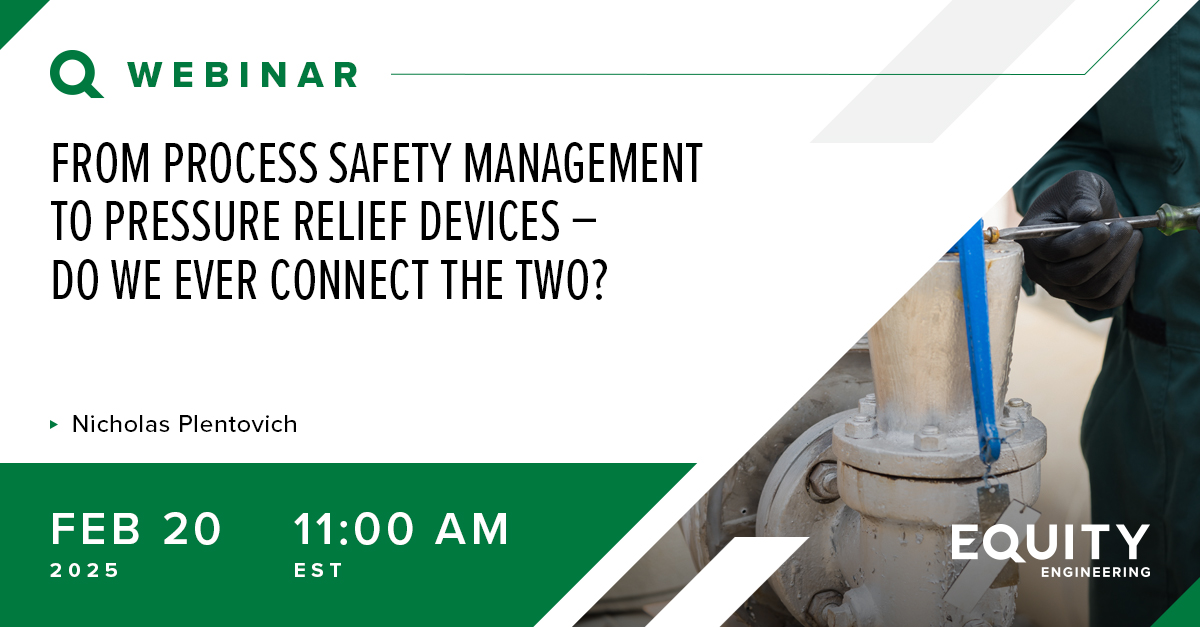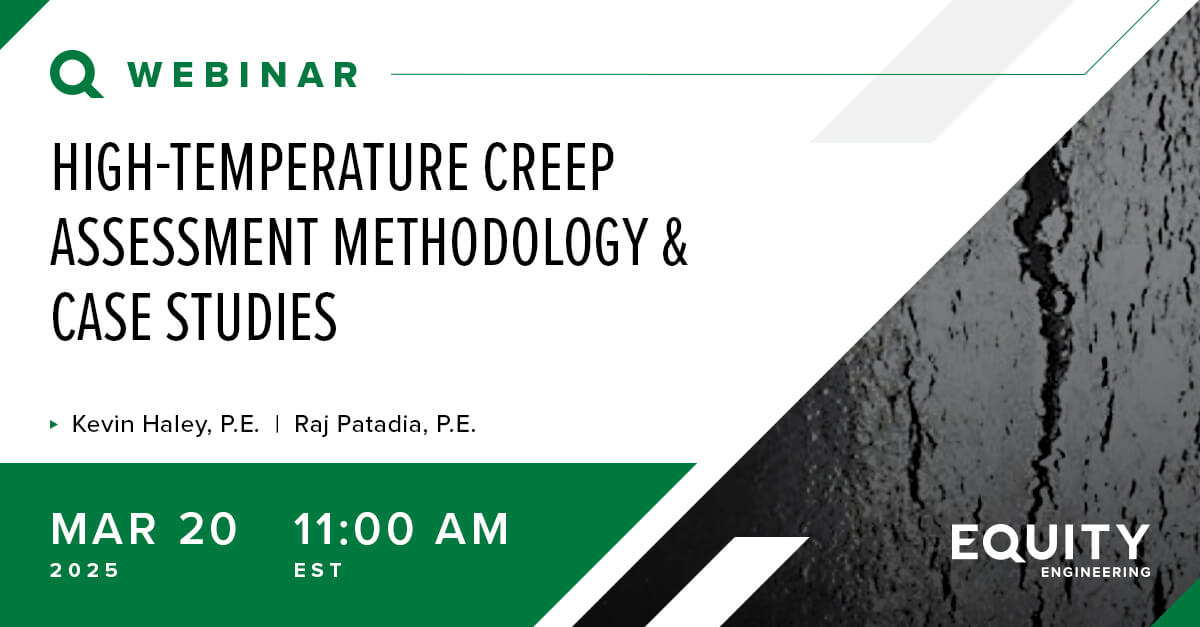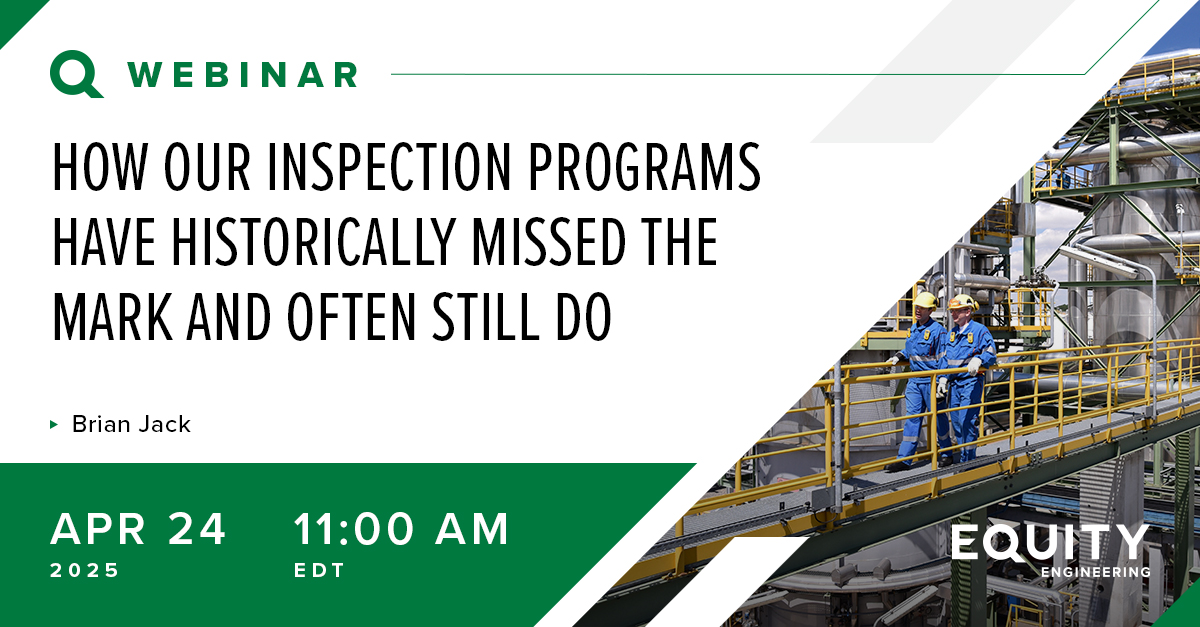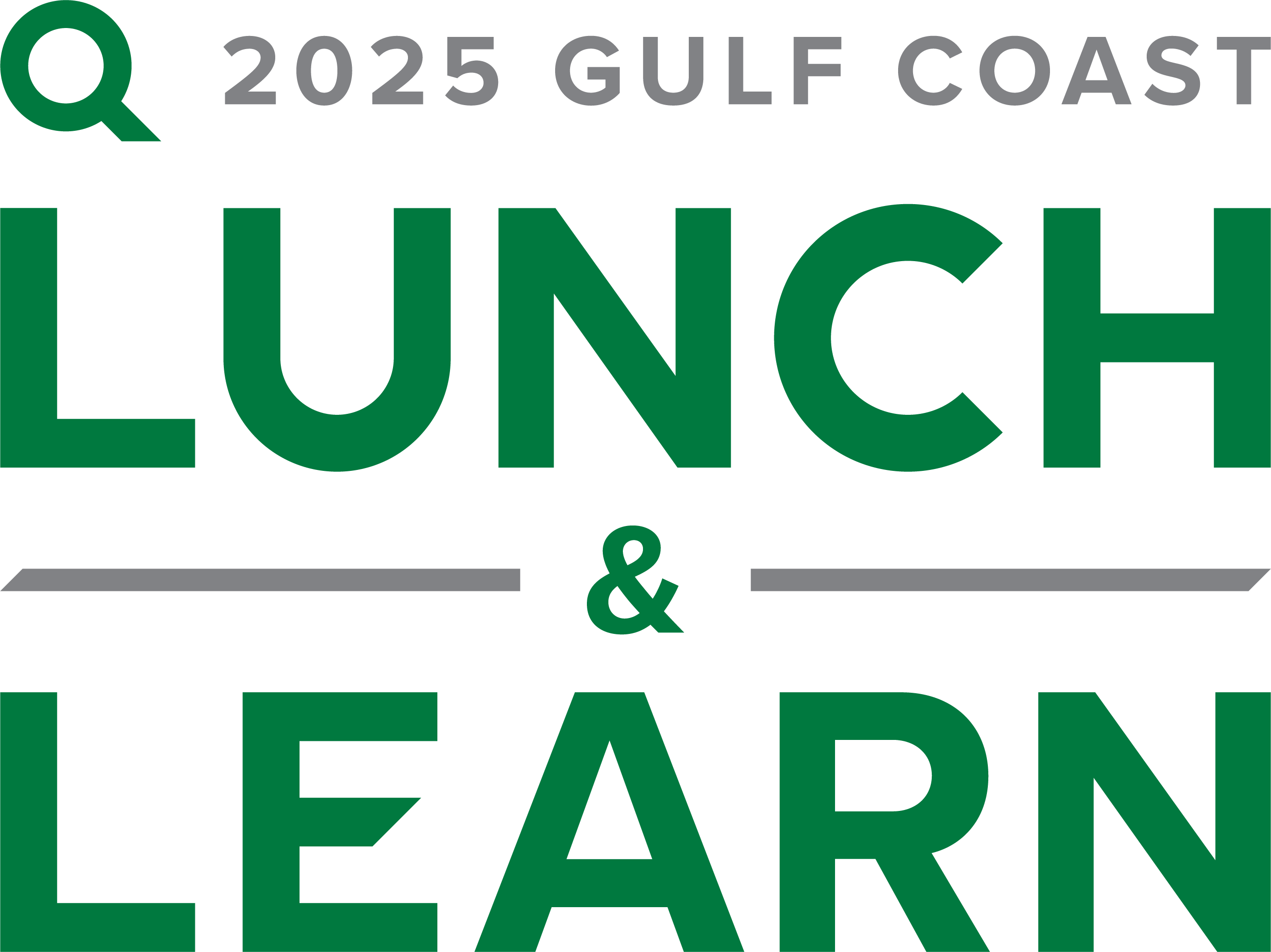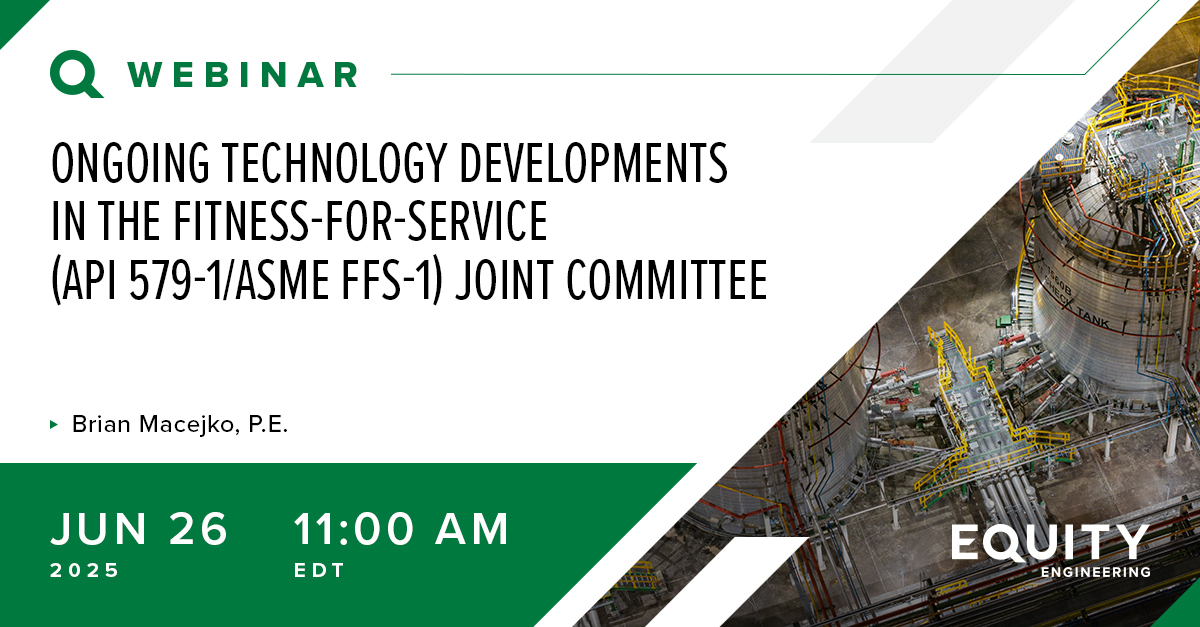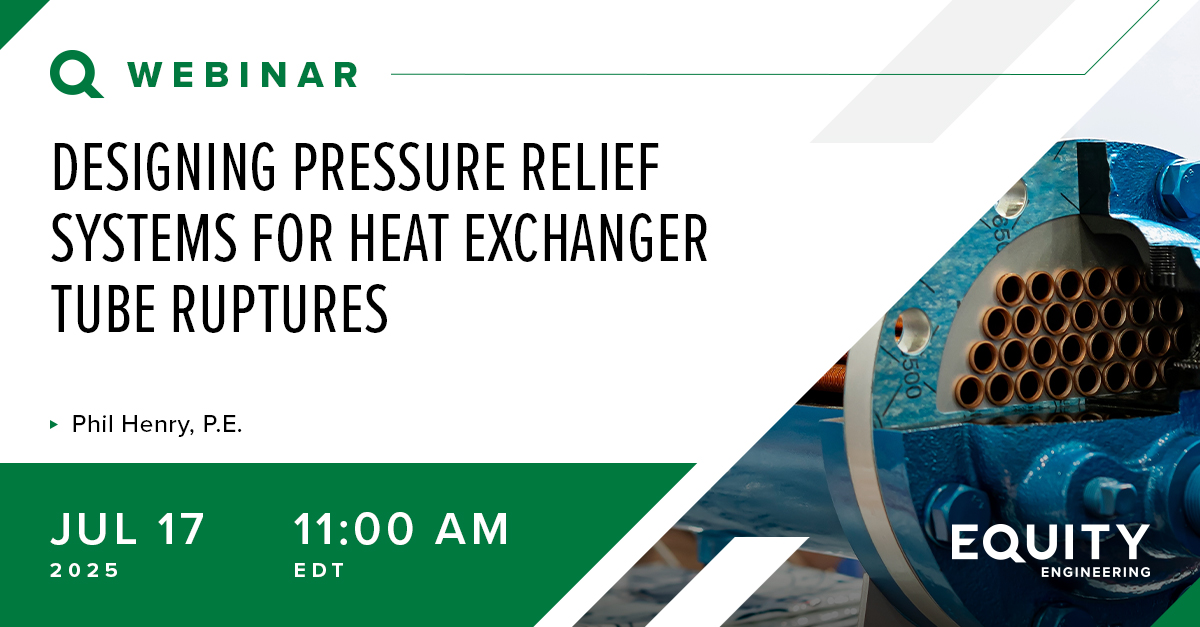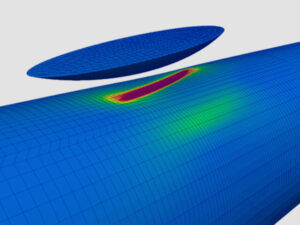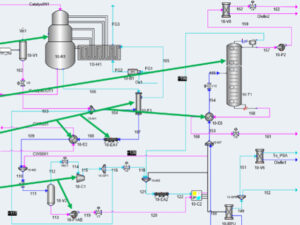2025 Equity Symposium
Join us for the 2025 Equity Symposium, one of the best educational events of the year. Over two days, you’ll hear about real-world solutions that make industrial work environments safer. Join us to learn from Equity experts and industry peers as they share purpose-fit solutions and actionable results that address complex industrial challenges directly. You’ll […]
From Process Safety Management to Pressure Relief Devices – Do We Ever Connect the Two?
Two groups within a processing plant rarely interact, but each has a vested interest in the reliability of pressure relief devices. The PSM group performs process hazards analyses (PHAs) to determine the required safeguards a process needs to meet the company’s risk target. A major safeguard for reducing risk is the pressure relief device (PRD), […]
High-Temperature Creep Assessment Methodology & Case Studies
FFS assessment of components operating at elevated temperatures in the creep regime can pose several challenges. The results of any assessment are highly sensitive to the key analysis inputs – stress, temperature, time, and material properties. Unfortunately, many times, historical operating process data is required to accurately capture these inputs, and the end results when […]
Tips, Tricks, and Best Practices to Expedite and Maximize the Value of Fitness-for-Service Assessments
FFS technology is used to optimize run, repair, or replace decisions for equipment containing flaws or defects. API 579-1/ASME FFS-1 (API 579) is the international code that provides Level 1, Level 2, and Level 3 FFS procedures to assess various damage mechanisms. This presentation will provide the novice or intermediate experienced FFS practitioner an overview […]
Gulf Coast Lunch & Learn: What’s New in Piping Integrity Management
You’re invited to join us on June 17 for a comprehensive overview of the latest changes in API RP 574 related to structural minimum thickness requirements. Don’t miss your opportunity to hear about the changes from Kraig Shipley, who is technical support for the development of the new structural minimum thickness rules for API 574.
Ongoing Technology Developments in the Fitness-for-Service (API 579-1/ASME FFS-1) Joint Committee
Fitness-for-Service (FFS) technology has significantly evolved since the initial publication of API RP 579 in 2000. With each subsequent edition of the document, there have been significant upgrades to existing technology as well as the introduction of new technology that has proven to provide tremendous value to owner-operators by providing a safe and justifiable means […]
Pressure Vessels: ASME VIII-1
Gain a solid, practical understanding of pressure vessel design with this in-depth training course, focused on the requirements of the ASME Boiler & Pressure Vessel Code, Section VIII, Division 1 (ASME VIII-1). Learn the Code's organization and its key content, including its general requirements, component design, materials, fabrication, and testing procedures. Build competency in the […]
Designing Pressure Relief Systems for Heat Exchanger Tube Ruptures
When designing pressure relieving systems for heat exchangers, the potential for internal tube failure needs to be considered, particularly if there is a significant difference in design pressure between the shell-side and tube-side of the exchanger. As per API STD 521, Pressure Relieving and Depressuring Systems, if the operational pressure on one side exceeds the […]
